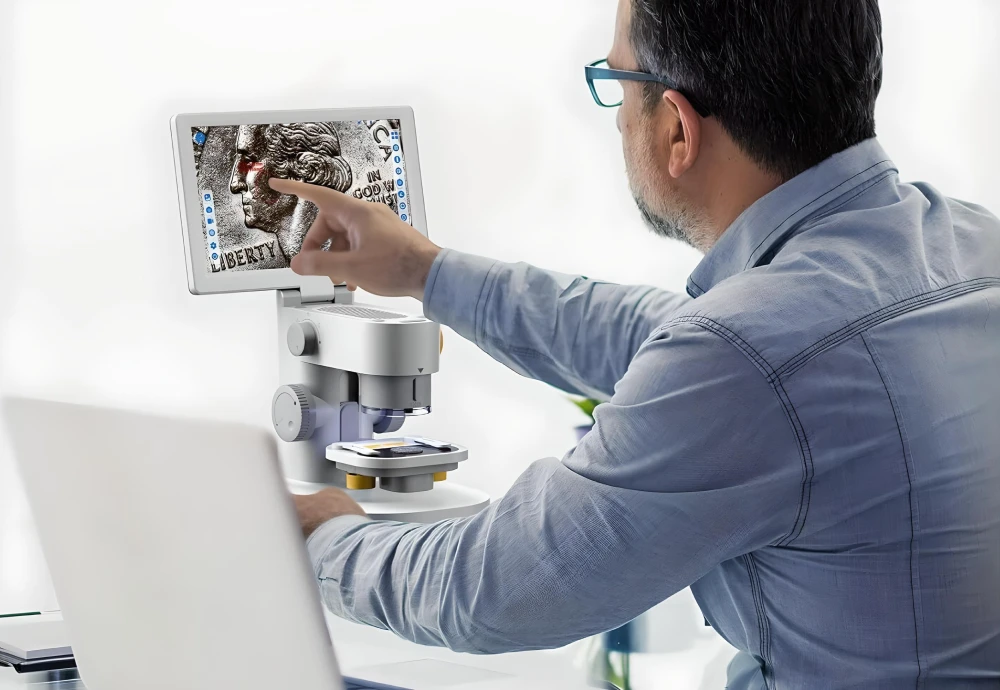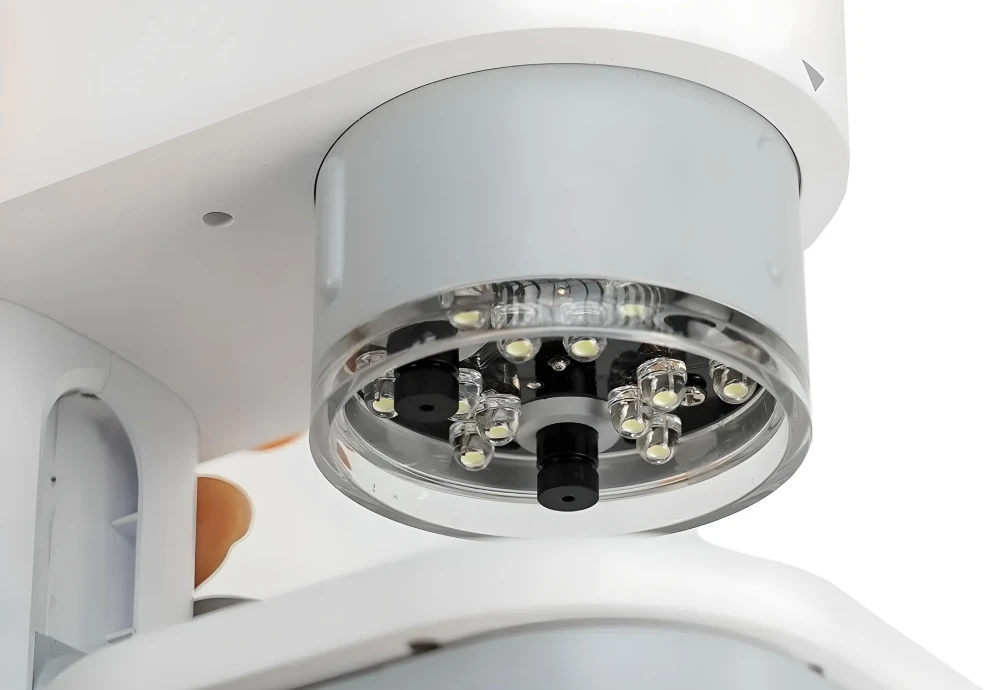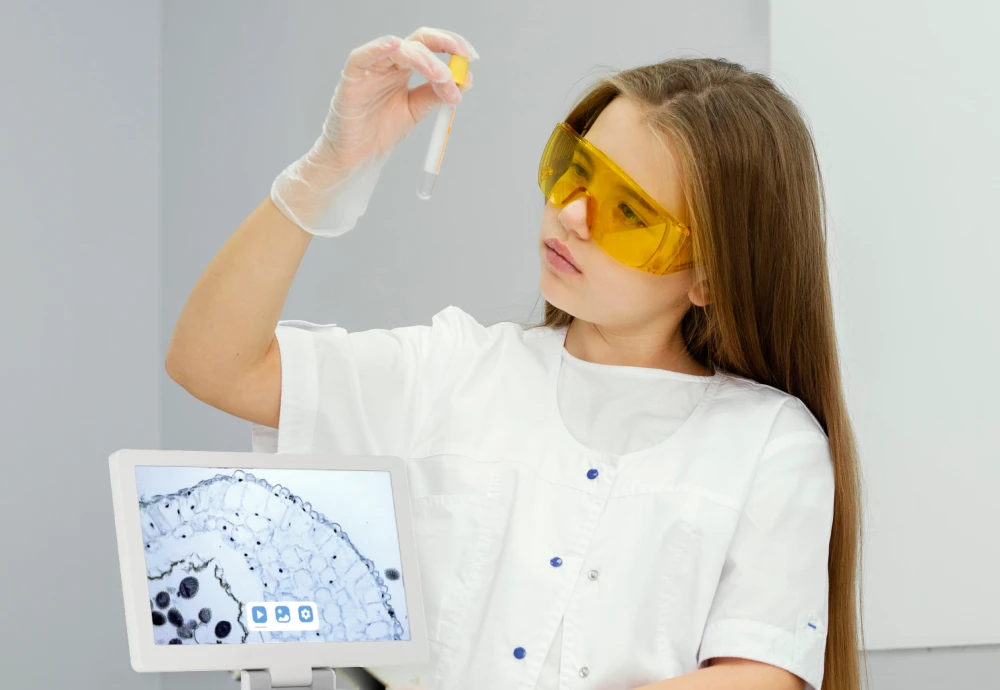Decoding the Mystery: How Does a Digital Microscope Work?

The field of microscopy has been revolutionized by digital technology, but have you ever wondered – how does a digital microscope work? This article will delve into that question while providing insights on product benefits and offering tips to get the most out of your device.
Digital Microscopy Basics

We begin our journey with understanding what makes up these fascinating devices. A digital microscope, such as Luminess’s 1200X Touchscreen model, is an integration of traditional optics with modern technology.
The Role of Optics
In answering ‘how does a digital microscope work’, we must first understand optics’ role. Just like their traditional counterparts, digital microscopes employ lenses to magnify objects or samples.
Pivotal Functionality: The Camera System

A critical component in any digital microscope setup is its camera system. In models like Luminess’s 1200X Touchscreen Digital Microscope with Triple Camera, it captures high-resolution images for detailed analysis.
How Does a Digital Microscope Work: The Power Behind Image Processing
Digital microscopy isn’t just about capturing images; it also involves processing them for better clarity and detail. Sophisticated software algorithms are used to enhance image quality further than what can be seen through conventional microscopy methods.
Now that we’ve covered the basics, let’s delve deeper into how does a digital microscope work. The object to be examined is placed under the lens system, which magnifies it and projects an image onto the camera sensor.
The Triple Camera Advantage
A distinguishing feature of Luminess’s 1200X Touchscreen Digital Microscope with Triple Camera is its ability to provide multiple viewing angles for comprehensive analysis. This unique capability gives users more control over their observations and findings.
Digital microscopy has come a long way since its inception. Today, it boasts features like touchscreen controls, on-the-go connectivity options, and even machine learning capabilities for automated analysis – all of which are present in Luminess’s advanced models.
Tips & Tricks: Maximizing Your Device Usage
To get the most out of your device like Luminess’s 1200X Touchscreen Digital Microscope with Triple Camera, ensure you understand its functionalities fully. Experimenting with different settings can help you achieve optimal results every time.
The field of digital microscopy continues to evolve rapidly as technology advances. Staying updated about latest trends will allow users to leverage these advancements effectively.
How Does a Digital Microscope Work: Understanding the Benefits

Now that we’ve answered ‘how does a digital microscope work,’ let’s explore why they are so beneficial Digital microscopes, like Luminess’s 1200X Touchscreen model, offer numerous advantages over traditional models.
Digital microscopes capture high-resolution images that can be viewed screens, allowing for enhanced visualization. This feature is especially useful when multiple people need to view the same simultaneously or if detailed analysis is required.
How Does a Digital Microscope Work: The Convenience of Digitized Data
In addition to superior visualization capabilities, another significant benefit of using a digital microscope is its ability to digitize data. You can easily store and share these digital files without worrying about physical damage or loss.
The integration of technology in devices such as Luminess’s 1200X Touchscreen Digital Microscope with Triple Camera opens up many possibilities. With connectivity options like USB ports and Wi-Fi capability, you can connect your device to computers or other smart devices for seamless data transfer.
Tailoring Your Experience: Customizable Settings
A key advantage of modern digital microscopy lies in customization. Features like adjustable LED illumination, zoom control settings, and image processing tools allow users to tailor their experience according to their specific needs.
So, if you’ve ever wondered ‘how does a digital microscope work,’ we hope this article has shed some light on the subject. Digital microscopes are powerful tools that have revolutionized microscopy, offering numerous benefits and advancements over traditional models.
The 1200X Touchscreen Digital Microscope with Triple Camera from Luminess is an excellent example of how far this technology has come. With its advanced features and user-friendly interface, it offers an unmatched microscopy experience for both professionals and hobbyists alike.












Leave a comment